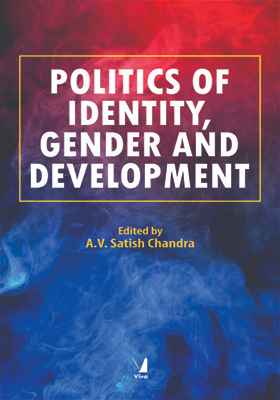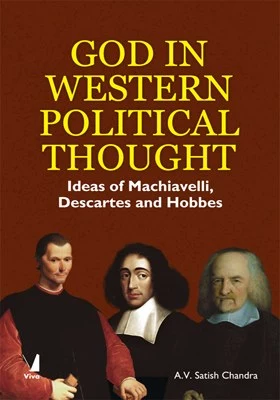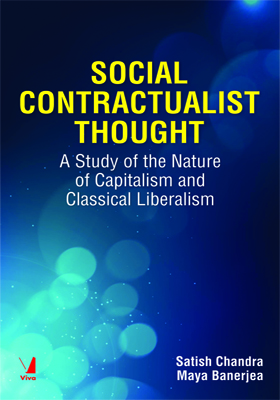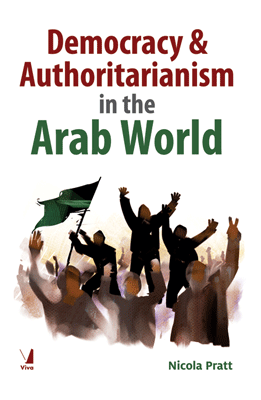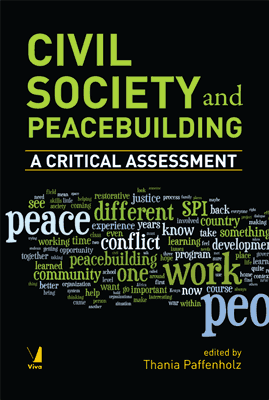Studies in Comparative Politics, 3/e
Studies in Comparative Politics, 3/e
An Introduction to Approaches and Issues
₹1,705.50 ₹1,895.00 Save: ₹189.50 (10%)
Go to cart-
Out of Stock
ISBN: 9789386385260
Bind: Hardbound
Year: 2017
Pages: 424
Size: 6 x 9 Inch
Publisher: Lynne Rienner Publishers, Inc.
Published in India by: Viva Books
Exclusive Distributors: Viva Books
Sales Territory: India, Nepal, Pakistan, Bangladesh, Sri Lanka
"Covering basic theoretical approaches in the field and then applying them to specific cases or questions, this text helps students to see how theory is actually used in practice."
Praise for the previous editions:
"A concise, accessible and well-organized approach suitable for both undergraduate and graduate courses.... Studies in Comparative Politics puts students in the driver's seat as they apply what they learn to timely, substantive debates in political science."
—Nicholas Spina, Edgewood College
"Superbly demonstrates how comparativists use theory to grapple with important questions. Undergraduate and graduate students alike will find this engaging and well-structured text useful .... Most important, Lim makes abstract concepts accessible in ways that are neither patronizing nor trivial."
"Unlike most other texts in comparative politics that focus on country cases, Lim's valuable book gives students the skills to become critical thinkers and to actually DO comparative politics themselves."
—Claudia Holzner, University of Utah
Description:
This systematic, user friendly, and refreshingly unusual introduction to comparative politics has not only been updated and refined in the third edition, but also fully revised to reflect the impact of major new developments in world politics.
Designed to teach students how to think comparatively and theoretically about the world they live in, the book is organized around a set of critical questions—why are poor countries poor? why is East Asia relatively prosperous? what makes a democracy? how can we explain terrorism and genocide? what leads people to mobilize around a cause—each the topic of a full chapter. These issue chapters are based on the solid methodological and theoretical foundation laid out in the first part of the book, and the entire text is enhanced with case studies and graphics.
Target Audience:
Undergraduate and graduate students of political science.
Contents:
List of Figures
Acknowledgments
Chapter 1. Getting Into Comparative Politics • What Is Comparative Politics? • What Is Politics? • What Does It Mean to Compare? • Why Compare? • What Is Comparable? • What Are the Advantages of the Comparative Method? • The Importance of Method and Theory
Part 1. Doing Comparative Politics
Chapter 2. Comparing to Learn, Learning to Compare • Comparing and Open-Mindedness • Comparing and Critical Thinking • Strategies of Comparing • The Logic of Comparative Analysis • Concrete Models of Comparative Analysis • Conclusion
Chapter 3. Thinking Theoretically in Comparative Politics • Why Study Theory? • Theory in Comparative Politics • Theoretical Divisions: Rationality, Structure, and Culture • Rationality: A Nontechnical Introduction • The Structural Tradition • The Cultural Tradition • A Hybrid Tradition: Institutionalism • Separation or Synthesis? • Bringing Everything Together
Part 2. The Questions
Chapter 4. Why Are Poor Countries Poor? Explaining Economic Underdevelopment • Defining Poverty • To Be Poor or Not to Be Poor? A Rational Choice Perspective on Poverty • Cultural Explanations of Poverty: The Bad and the Good • Keeping the Poor Down? Structural Explanations of Poverty • Conclusion
Chapter 5. Why Has East Asia Prospered? Explaining Economic Growth in Japan, South Korea, Taiwan, and China • Rationality, the Strong State, and Rapid Economic Growth in East Asia • Culture and Capitalist Development in East Asia • Global Capitalism and the Rise of East Asia • Explaining China's Economic Rise • Conclusion
Chapter 6. What Makes a Democracy? Explaining the Breakdown of Authoritarian Rule • Defining Democracy: A Never-Ending Debate? • Economic Development and Democracy: A Necessary Relationship? • Agents of Democratization: Rational Choice and Democratic Transition • Structure and Rationality: Competition or Synthesis? • A Missing Link? Culture and Democracy • Taking the Next Step
Chapter 7. Why Do People Kill? • Explaining Genocide and Terrorism • Definitions: Genocide and Terrorism • Strategic Killers? Rational Choice Explanations of Genocide and Terrorism • The Culture of Killing: Cultural Approaches to Explaining Collective Political Violence • The Power of Culture: Making Genocide and Terrorism Possible • Choice or Fate? A Structural View of Genocide and Terrorism • Conclusion
Chapter 8. Why Collective Action? Explaining the Rise of Social Movements • What Is a Social Movement? • Social Movements and Rationality • Structural Accounts of Social Movements • Culture and Social Movements • The Three Perspectives and the Arab Spring • Conclusion
Part 3. The Future of Comparative Politics
Chapter 9. Globalization and the Study of Comparative Politics • What Is Globalization? • Implications of Globalization in Comparative Politics • Globalization and the Three Research Traditions • Conclusion
Glossary
Selected Bibliography
Index
About the Book
About the Author:
Timothy C. Lim is professor of political science at California State University, Los Angeles.

